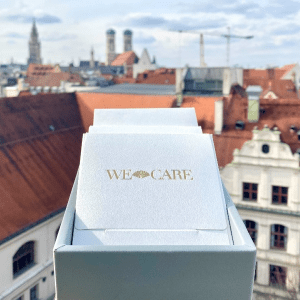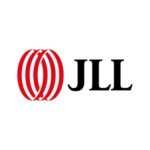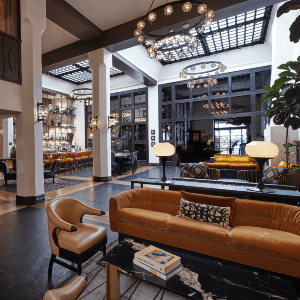 In October 2019, Mandarin Oriental Hotel Group (MOHG) pledged to eliminate all single-use plastic (SUP) across its portfolio of luxury hotels by the end of March 2021.
In October 2019, Mandarin Oriental Hotel Group (MOHG) pledged to eliminate all single-use plastic (SUP) across its portfolio of luxury hotels by the end of March 2021.
Three months on from that deadline, the Group has made significant progress towards meeting the goal, despite ongoing challenges. By the end of Q1 2021, the Group had achieved nearly 70% reduction in this annual plastic footprint. Based on estimated plastic stock depletion timelines and supplier delivery commitments, it is expected that all hotels will eliminate SUP by the end of Q1 2022, avoiding 930 tonnes of plastic waste each year. The principal reason for the Group not hitting the target date is the delay in usage of existing SUP supplies due to the low business levels caused by the pandemic.
The Group has been committed to eliminating SUP across all areas of its hotels, including rooms, spa, transport, restaurants and bars as well as in back-of-house areas not seen by guests, such as offices, colleague areas and kitchens. To help colleagues work through their efforts to eliminate SUP, the most common SUP items were identified across the three main operational departments: F&B, Spa and Rooms. Of these, six high-impact items accounted for 81% of annual SUP waste generated:
- Garbage bags (294 tonnes per year)
- Water bottles (7.7 million bottles per year)
- Slippers (816,000 pairs per year)
- Vacuum bags for food (88 tonnes per year)
- Cling film (80 tonnes per year)
- Amenities – shampoo, conditioner and shower gel (4.9 million bottles per year)
The pandemic has led to temporary hotel closures and low occupancies, thereby slowing the depletion of existing stocks of plastic products by up to 12 months in some markets.
The Group has not used the pandemic as a reason to relax its focus on the elimination of SUP. For example, ‘We Care’ packages for guests include reusable fabric facemasks that are plastic free as the Group firmly believes that hygiene and the highest sanitary standards can be maintained without SUP.
Moreover, the Group has consistently sought to use eco-alternatives that are completely plastic free, however, where none are available in the market, some exceptions to its commitment to eradicate SUP have been made. Examples include toothbrush bristles that are still plastic, while in the view of health and safety, hygiene seals for F&B items such as plastic seals for beverages or candy jars have not been removed to make them free of SUP. Likewise medical items, especially hygienic wrapped medical grade kit, are exempted in first aid kits.
Although supplier packaging is excluded from these calculations, as MOHG does not have direct operational control, hotels continue to tackle this through collaborative actions with suppliers.
Colleagues from every hotel continue to focus on finding solutions and alternatives to SUP as the Group collaborates to drive further responsible procurement and provide alternative products that are viable for the luxury hotel environment.
The Group will progressively phase out the use of synthetic materials made with plastic fibres given their contribution to microplastics in the environment. Eco-alternatives are reviewed with circular economy considerations in mind in order to identify materials with a lower environmental impact, thus avoiding the transfer of environmental cost from plastics to another system.
The Group remains committed to contributing to the communities in which it operates and responsibly managing its environmental impacts and social commitments. Corporate responsibility values are deeply ingrained in MOHG’s culture, and sustainability implications are carefully considered with each and every decision across the Group. As the Group grows its portfolio of hotels and residences around the world, great importance is placed on operating hotels sustainably over the long term.
“Although our ambitious timeline to eliminate all single-use plastic from our premises by the end of March 2021 has been deferred by one year, largely as a consequence of the pandemic, we have made massive progress, with a majority of our hotels expected to reach the elimination goal by the end of July this year,” said James Riley, Group Chief Executive. “Despite the ongoing challenging conditions, our colleagues have continued to embrace our commitment to deliver on the Group’s sustainability responsibilities,” he added.
The Group will issue a further report on progress in Q4 2021.
Mandarin Oriental’s Sustainability Objectives
Mandarin Oriental is well recognised for delivering service excellence across its portfolio of luxury hotels and is committed to operate its hotels and residences in a responsible and sustainable way. As a supporter of the United Nations Sustainable Development Goals, the Group seeks to contribute to the communities in which it operates and responsibly managing its environmental impact and social commitment. The elimination of single-use plastic is only one part of the Group’s range of initiatives. These other initiatives are outlined in the company’s latest Sustainability Report, and are supported by the dedication and hard work of Mandarin Oriental’s colleagues who continue to identify impactful ways to respond to local community and environmental needs. Information on the individual hotel’s own initiatives towards sustainability – for the environment, for their communities and for their guests – is recorded in the Group’s Naturally Better campaign on each hotel’s website.


















